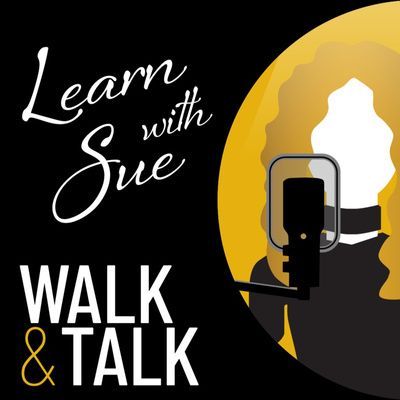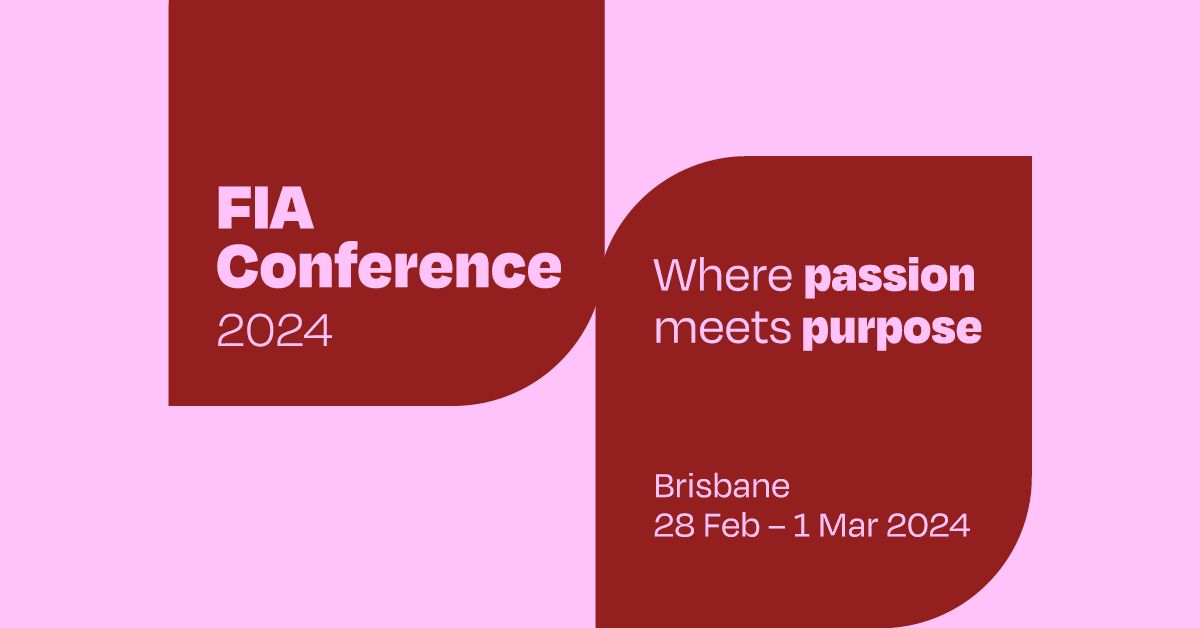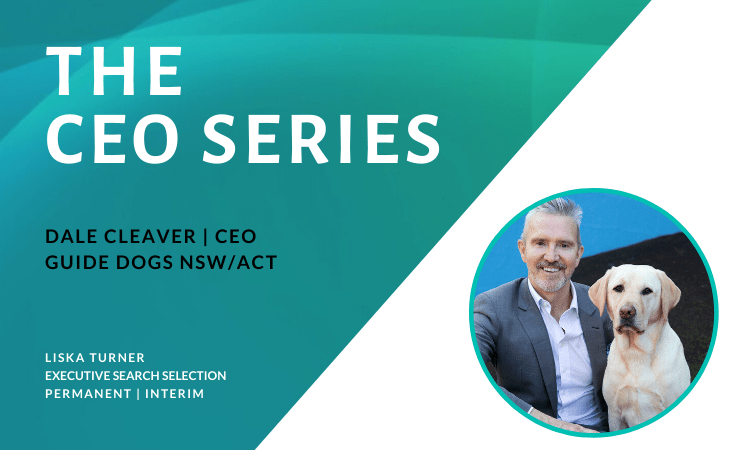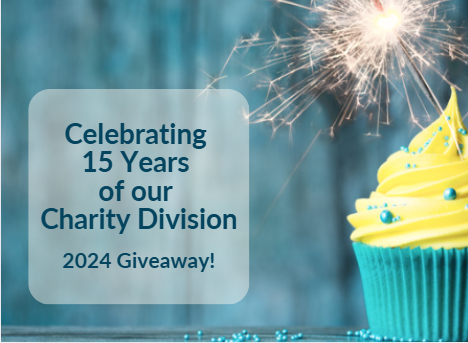The CEO Series: Q&A With Dale Cleaver, CEO At Guide Dogs NSW/ACT
The CEO Series: Leadership Observations From The Front Line
For-Purpose leaders are as diverse as the organisations that they lead. Every couple of months I sit down with a CEO where they share their experiences and thoughts on leading a for-purpose organisation. This month I had the pleasure of talking to Dale Cleaver, CEO at Guide Dogs NSW/ACT.
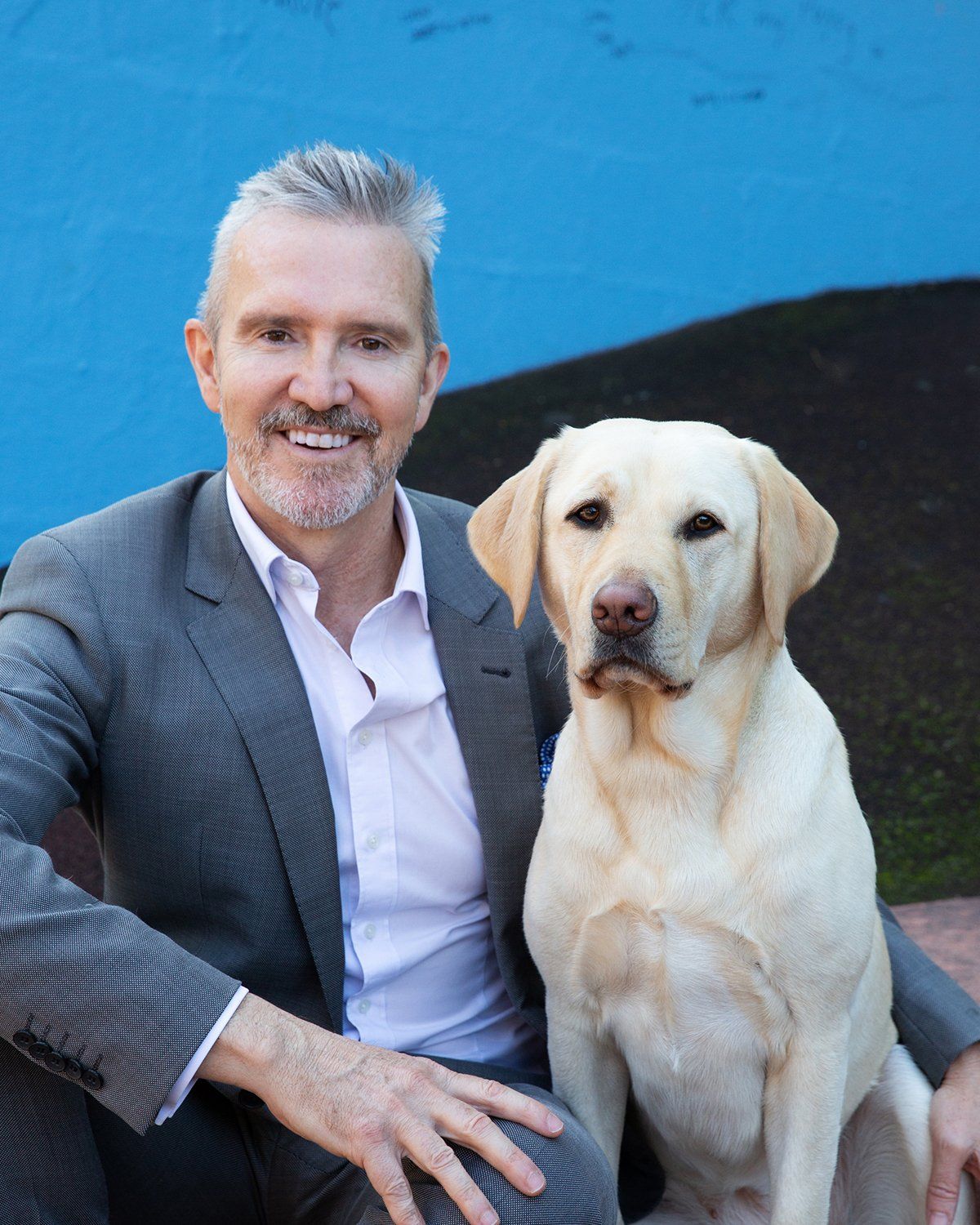
Dale Cleaver, CEO at Guide Dogs NSW/ACT
Dale Cleaver is the CEO of Guide Dogs NSW/ACT, the leading provider of Guide Dogs and orientation and mobility services that enable people with sight loss to move around their communities independently. Dale’s history of working in the health, not for profit and charity sectors includes positions as CEO of Campbell Page, the Royal District Nursing Service as well as Australian Red Cross, where he led the organisation through the 2004 Tsunami Disaster. At the helm of Guide Dogs NSW/ACT, the organisation is growing to meet the demand for services as more people across NSW and the ACT are affected by sight loss.
CEO’s lead from the front. What are the most important decisions you make as a leader of your organisation?
Working with your board on setting purpose and direction. Organisational clarity is important.
Values. They need to be upfront and centre.
What you are not going to do is just as important as what you do.
Know who your Team 1 is. You cannot lead alone. As a leader, you will have blind spots and the other people on your team will complement you. Allow them to step forward and lead.
Finally, know when its time to hand over the reins and leave.
What is your best habit?
- Drive
- Belief in people and checking in with them
- Spending time with front line staff and your clients. Talk to the consumers of your organisation. Encourage others to do that as well.
This is the test.
I’d say being honest and authentic.
When things are going to get tough be honest with people because people’s bull shit radar is high so be open and talk about the discomfort it might create.
I’ve learnt and sometimes still struggle with this - over-communicate. Storytelling is the best way. Think about who your influencers are and engage them in helping to tell the story.
Create a picture of the road ahead. Talk about the key points of what you are trying to achieve and what the major decision points are.
Socialise it with your staff advisory group. Make sure they are cross-functional and from all levels of the business. Get their input.
Recognise and reward behaviours. Accept that staff engagement will dip through the process.
Be honest with the board. They get nervous and you need their support.
No business operates in isolation. When you are considering partnering with another person or business, what factors are deal-breakers for you?
Values alignment and the level of trust.
Do your homework. What makes them stand out and what’s their track record.
Be very clear about what happens when something goes wrong and how you will resolve it. Open communication is key.
Succession planning is key to building a sustainable organisation. How do you choose who to promote?
It can be hard.
In addition to technical skills and cognitive abilities etc. I look for their level of alignment with the organisation and their passion for the purpose of the organisation. Are they a developer of people? What are their personal insights and willingness to learn?
I think is important for the sustainability of the sector to support the development of people. I have been involved in supporting a number of my executives to go on and be CEO’s across the NFP sector.
Where do you draw your support and inspiration from as a leader?
As CEO you are not the organisation, you have stewardship and responsibility for a period of time. I like to look back to the pioneers and legacy of the organisation as we chart the future.
When I have had a bad day, I like to get in the car with a staff member and go and talk to our clients. This front line connection back to our service is a reminder of why we do what we do.
The role of the CEO is quite unique. What advice would you give someone going into a CEO leadership role for the first time?
Be prepared to be vulnerable and allow your team to see the humanness in you.
Remember, it is okay to say I don’t know if this is going to work. This can be hard because you might feel that you have to know everything. Accept that there are going to be times when you are going to blunder.
Be brave. Think long term. Short term thinking can bring you undone. Accept that sometimes the legacy of your decisions will come to fruition some years later, maybe even after you have left.
You can never stop thinking about your own development and education. Mentors are important. I’ve always had one. The best ones are the ones that make you work, they throw it between your eyes.
Stop talking and listening.
What leadership decision are you most proud of?
It’s been the big decisions where I have had to back myself and be prepared to take a position that hasn’t always been popular at first.
Follow Guide Dogs NSW/ACT on LinkedIn
Follow Guide Dogs NSW/ACT on Facebook
Instagram: @guidedogsnswact
Share This blog
Recent Articles
